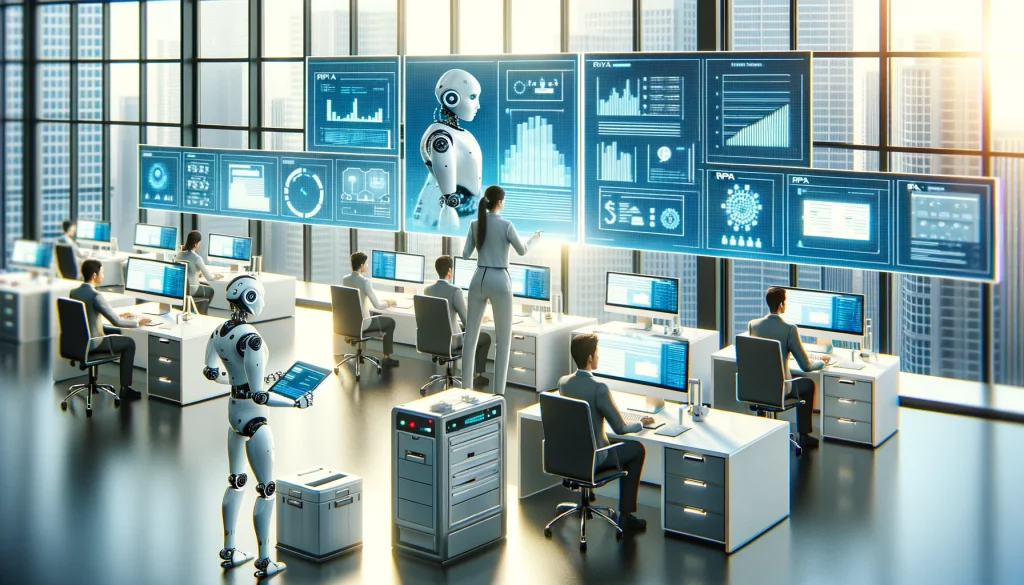Artificial intelligence
Understanding Robotic Process Automation (RPA): Transforming Business Processes
In today’s fast-paced digital world, businesses are constantly seeking ways to improve efficiency and reduce operational costs. One technological innovation that has gained significant traction in recent years is Robotic Process Automation (RPA). This cutting-edge technology leverages software robots, or “bots,” to automate repetitive and rule-based tasks traditionally performed by human workers. In this article, we’ll explore what RPA is, its benefits, and how it is transforming business processes across various industries.
What is Robotic Process Automation?
Robotic Process Automation (RPA) refers to the use of software robots to automate highly repetitive, routine tasks that do not require human decision-making. These tasks can include data entry, invoice processing, customer service inquiries, and much more. RPA software bots interact with applications and systems just like humans do, performing tasks quickly and accurately.
Key Benefits of RPA
- Increased Efficiency: RPA bots can work 24/7 without breaks, leading to significant improvements in productivity and process efficiency. Tasks that used to take hours can now be completed in minutes.
- Cost Savings: By automating routine tasks, businesses can reduce labor costs and allocate human resources to more strategic, value-added activities. This results in a higher return on investment (ROI) over time.
- Improved Accuracy: Human errors in repetitive tasks can be costly. RPA bots, on the other hand, perform tasks with precision and consistency, minimizing errors and improving the quality of outputs.
- Scalability: RPA solutions can be easily scaled up or down based on business needs. Whether a company needs to process a high volume of transactions or handle seasonal peaks, RPA provides the flexibility to adapt quickly.
- Compliance and Auditability: RPA ensures that tasks are performed in accordance with predefined rules and regulations. This enhances compliance and makes it easier to track and audit processes, ensuring transparency and accountability.
Applications of RPA Across Industries
RPA is being adopted across a wide range of industries to streamline operations and improve efficiency. Some notable applications include:
- Finance and Accounting: Automating invoice processing, reconciliations, and financial reporting.
- Healthcare: Managing patient records, billing, and claims processing.
- Retail: Handling inventory management, order processing, and customer service.
- Manufacturing: Streamlining supply chain operations, order fulfillment, and quality control.
- Telecommunications: Automating customer support, service provisioning, and network management.
The Future of RPA
As businesses continue to embrace digital transformation, the role of RPA is expected to expand. Advances in artificial intelligence (AI) and machine learning (ML) are enhancing the capabilities of RPA bots, enabling them to handle more complex tasks that involve decision-making and data analysis. This evolution, often referred to as Intelligent Automation (IA), combines the strengths of RPA and AI to create even more powerful automation solutions.
Moreover, the integration of RPA with other emerging technologies, such as the Internet of Things (IoT) and blockchain, is set to revolutionize industries further. For instance, in supply chain management, IoT devices can provide real-time data, which RPA bots can process and act upon, optimizing logistics and inventory management.
Conclusion
Robotic Process Automation (RPA) is transforming the way businesses operate by automating repetitive tasks, improving efficiency, and reducing costs. As technology continues to evolve, the potential for RPA to drive innovation and enhance productivity across industries is immense. Businesses that invest in RPA today are not only gaining a competitive edge but also paving the way for a more agile and efficient future.
